*Published with the generous permission of Teri Kanefield. Read all of her writing here.
By Teri Kanefield
Something unusual happened last week in the comments to my blog post. I logged in on Sunday to find more than 90 comments on my blog, some of them quite heated. I didn’t have the time to read them or moderate a heated discussion. I therefore disabled the comments.
Initially, I removed about 25 comments. I’ve now put back all but the heated ones.
When several people complained that I shut down the comment section, I promised to discuss what happened in this week’s blog post.
Spoiler: The reaction to last week’s blog post proves the point I’ve been trying to make about the nature of the outrage machine. As one reader said:
The reaction to you calling out the network proves the point you are making about the network.
The Propensity to Analyze
A long time ago, when we were first married, my husband joked that he was prepared to lose all of our arguments. What happened is that I analyze everything he says, like this: “You said this, and then I said that which means . . . ”
You gotta feel sorry for him. How would you like to have things you say carefully analyzed?
And here I am, about to analyze the comments of some of my readers.
Last week I argued that the executives erred in hiring McDaniel to appear on MSNBC because, given who McDaniels is and how she talks, it was foolish to think she could appear on an MSNBC show.
I also had trouble with the takes that the hosts were motivated by “journalistic integrity” given that I have witnessed the network falling further into conspiracy thinking and outrage peddling.
I have spent much time over the past five years writing FAQ pages to try to tamp down what I called “rage-inducing simplifications” coming from what I have been calling the MSNBC-CNN-left-wing-social-media ecosystem, like the ones on this Criminal Law FAQ page.
I have also written at length about the conspiracy thinking being generated in the MSNBC-CNN-left-leaning-social-media ecosystem. See, for example, this series. For a more specific analysis of the conspiracy thinking, see this dissection of MNSBC conspiracy theories about Merrick Garland, this post about the false narratives that originate with these pundits and influencers, and this post about how the outrage machine drove the 14th Amendment Section 3 issue.
My take on the Ronna McDaniel hiring and firing debacle was that the MSNBC hosts understood the nature of their shows and their audiences better than the executives.
To give you a sense of the level of anger generated by my post, one of the first responses came through email from a long-time subscriber:
Wow. You are really smart. It’s such a shame that you’ve chosen to use your big beautiful brain to destroy democracy. Your logic is sound but apparently your heart is not. I’m sure the maga cult appreceiate all your help.
This, too, came through email from a subscriber.
Utter horseshit. Buzz off.
It was immediately clear to me that something was going on.
When I wrote analysis for The Washington Post, I occasionally received those kinds of emails from furious conservatives. I once received a letter from a librarian in Tennessee who didn’t like how I had portrayed Andrew Jackson in one of my books. My blog posts, however, have never generated anger.
It was rather interesting. 🧐
The objections to my blog post fell into 3 general categories:
Let’s start with (1). Numerous people last week asked me if I was discussing MSNBC and not FOX, like this person, who asked:
It seems as if you consider FOX and other right leaning organizations less of a problem. You seem hyper-focused on one side of this divide. Why is that?
My response:
I recently published a book on disinformation with Macmillan and spent much time researching right-wing propaganda, so I am well aware of the problems on the right.
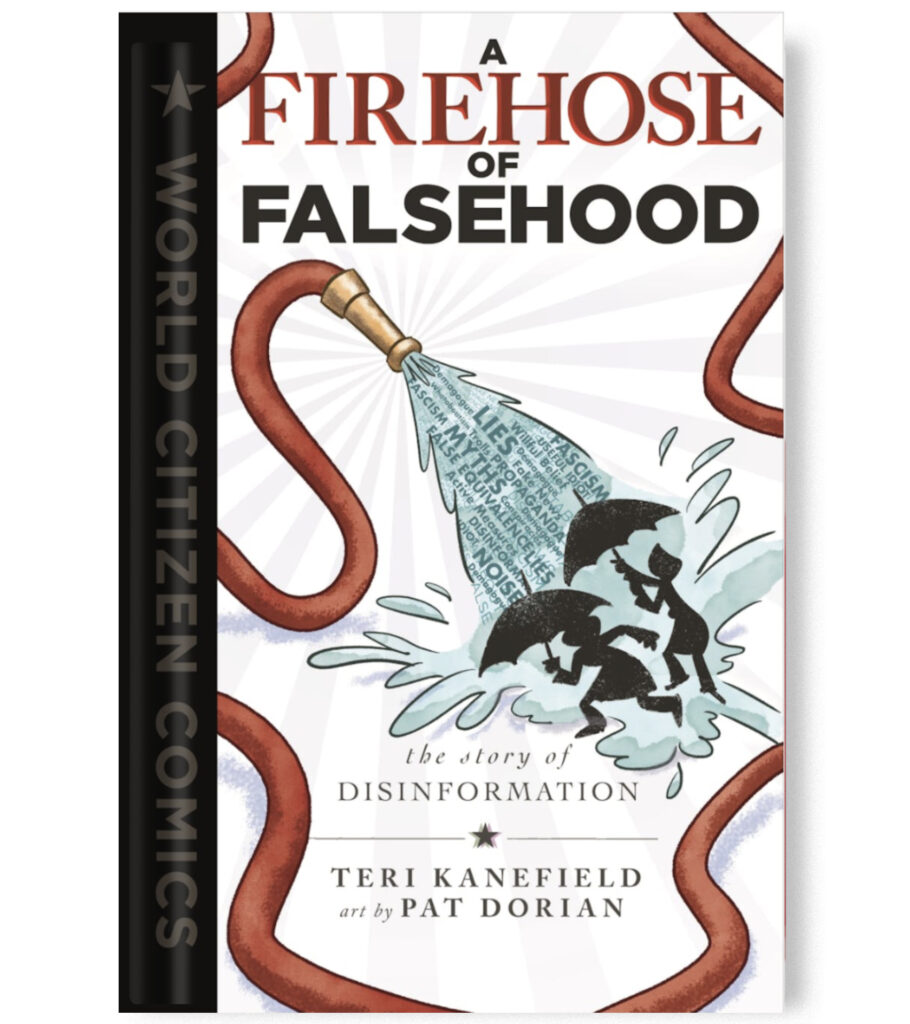
This person told me I should stick to explaining the law and I was “missing the boat” about the “media establishment”:Ms. Kanefield — I’ll start with thanks for your detailed, thoughtful, careful and generally correct analytical approach to the issues of the day. It’s all good.
That being said, I think you are missing the boat with your views of the media establishment, principally cable news, as outlined in your analysis of the Ronna McDaniel story. For whatever reason, you seem wedded to the both sides do it, the left is just as bad as the right.
Viewing my post as an example of “bothsidesism” was a common theme in the comments and questions. This person asked:
Doesn’t Fox do the same thing or worse? Why aren’t you talking about them? Aren’t you dishing up some bothsidesism?
Bothsidesism is also called the “false balance” fallacy. This is when two opposing positions are treated as equally valid when they are not. If one position is supported by an abundance of evidence while another is entirely bereft of it, it is profoundly misguided to afford equal air‐time and coverage to both positions.
An example of bothsidesism: Expert X says climate change is real. Expert Y says climate change is a hoax. Let’s present both sides.
This statement, “Both Fox and MSNBC offer conspiracy theories,” is an example of bothsidesism only if one side does not offer conspiracy theories. If both sides do offer conspiracy theories, it is not “bothsidesism.”
The question, “Is one side more extreme or dangerous?” raises a different question. Prof. Dannagal Goldwaithe Young confirms the sense I had: The tendency to engage in conspiracy thinking is more pronounced on Fox and Newsmax, but also exists on MSNBC and other outlets.
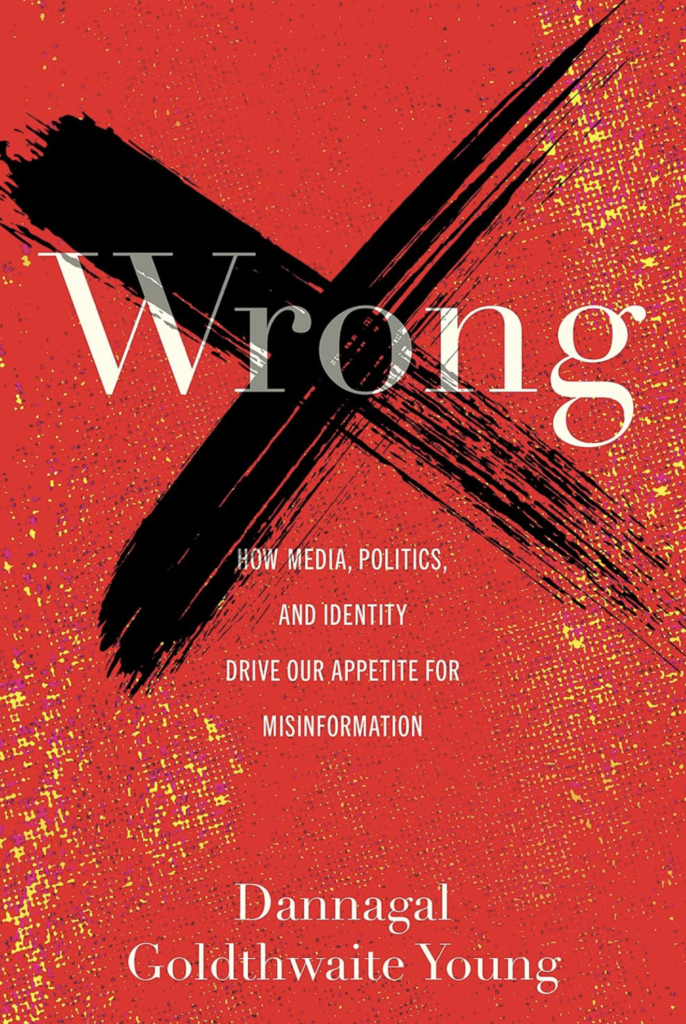

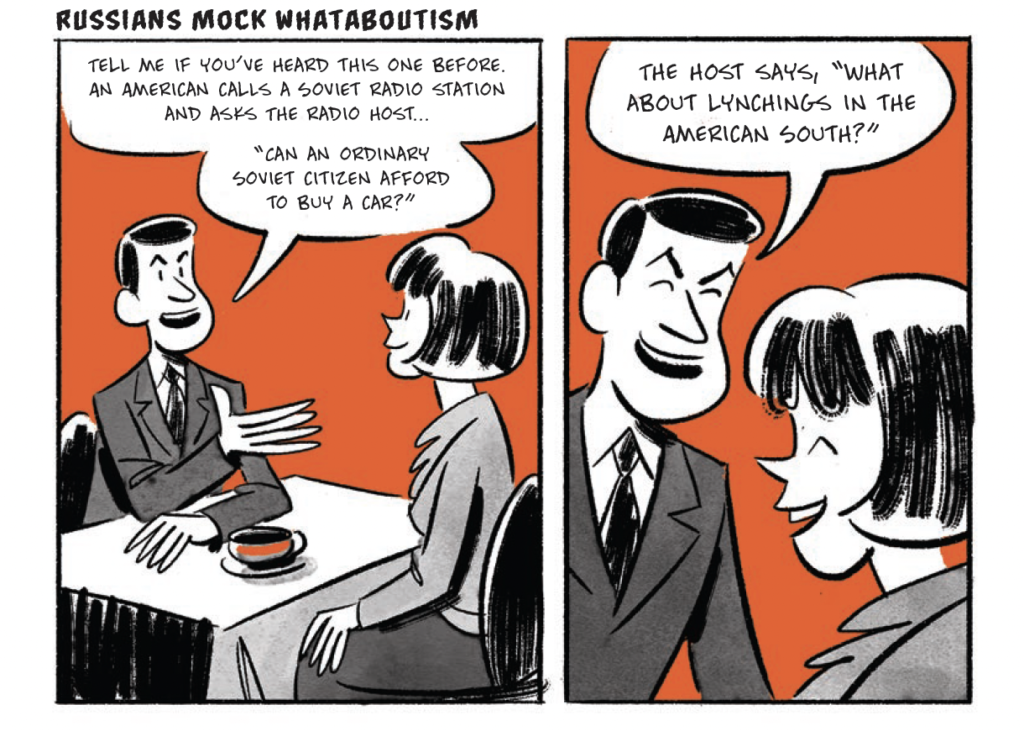
At the same time, I also received numerous comments like this one, which was texted from a friend:Teri, your analysis was spot on. MSNBC is getting worse.
This comment came on Mastodon:
I keep making a similar point. The outrage is becoming the point of many of their shows – and they’re shows, not news… let’s start with 15 minutes of observations to get your blood boiling and then we’ll break for a commercial to lower your A1C.
A lawyer I admire on Twitter responded with:
I found myself nodding as I read [your blog post].
Later, she wrote:
Laypeople on the left are also being brainwashed by TV lawyers who opine to satisfy the MSNBC producers who pay them. I spent Easter brunch today raining on the parades of various family members, as I so often must do here. It’s exhausting.
Other lawyers have been speaking out as well. Randall Eliason, who teaches law at George Washington University and Peter Arnella, a criminal law professor at UCLA, have similarly addressed some of these partisan legal pundits who are spreading bad information. Here you can see Eliason and Arnella responding to one of Tribe’s posts this week:
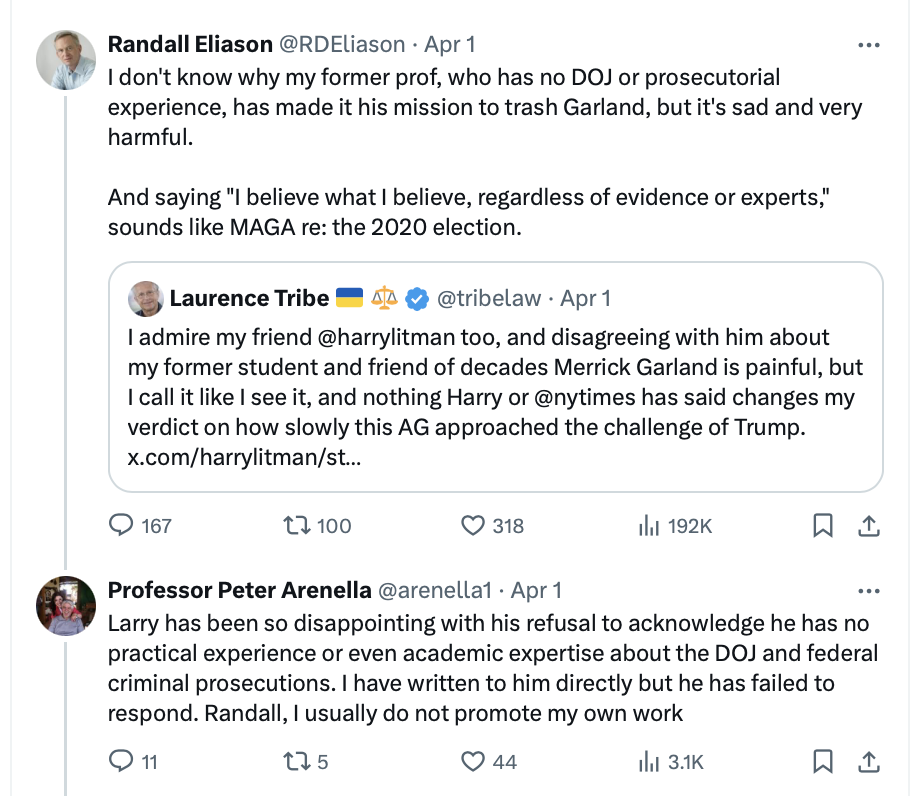
On Threads, Tim Miller said this about his comments:I’m getting mostly an anti-Trump echo chamber that already agrees with me broadly and is only upset if I’m not saying exactly what they want to hear.
Complaints #2 and #3: In last week’s blog post, I failed to talk about how horrible Ronna McDaniel is and failed to say that nobody should ever listen to anything McDaniel says so she should never have been hired by NBC in the first place.
Someone on Threads accused me of “minimizing” McDaniel’s role in the insurrection. (In fact, I didn’t mention it at all.)
Someone else on Threads said, “No, Teri. No nuance. No complexity. Not with Ronna McDaniels. Not with her.”
Across various social media sites, people told me I had failed to mention that Ronna McDaniel is an insurrectionist, a destroyer of democracy, a dangerous liar, and worse.
Several people told me she should be “forever shunned from polite society.” Another told me that nobody should ever listen to anything she says. Helpful people told me: “You don’t seem to understand how bad Ronna McDaniel is.”
A few people specifically told me that I missed the point in my blog post. I asked one angry reader to tell me the point I had missed. He said:
Mouthpieces for fascism who actively sought to overthrow our democratic order should be treated as pariahs and duly shunned.
Among other things, I knew that McDaniel:
The week the story that the NBC executives had hired McDaniel broke, I was traveling and spending time with young (Democratic) family members. I was paying no attention to social media and getting all my news from major print sources. I knew a controversy was brewing, but I had no idea what was happening inside the MSNBC-CNN-left-leaning-social-media ecosystem.
After being told that I didn’t write what I should have written, I scrolled back through the Twitter feeds of some of the key influencers and saw a consensus. The consensus was: It wasn’t enough that McDaniel wouldn’t appear on MSNBC. She should never have been hired by NBC because she was a destroyer of democracy and nobody should ever listen to anything she says ever again. The consensus among MSNBC viewers was this: We are moved by the journalistic integrity of the hosts.
It is possible that a person who (1) doesn’t watch cable news programs (2) does not follow liberal political accounts on social media and (3) is not influenced by people who do watch cable news or follow politics on social media was irritated that I wrote a blog post about Ronna McDaniel without the blog post being about how she is a destroyer of democracy who shouldn’t have been hired by NBC in the first place.
But it seems highly unlikely that dozens of people were that angry and saying the same things if an element of groupthink wasn’t at work.
“Less than reverent”
Upon first reading my blog post, someone on Mastodon warned me that because I was “less than reverent” toward Rachel Maddow, I should expect some pushback. Yes, the person used the word “reverent.”
Another person told me that:
Your MSNBC blog post made the Abbreviated Pundit Round-up on dKos this morning. People there are fairly defensive of MSNBC and cringe at the thought of it being criticized, but I did get some acknowledgement there that your points are valid, if painful.
Isn’t that a strange way to talk about a network?
A few people were stunned that I never watched Rachel Maddow. One person found it inconceivable that I could criticize MSNBC without having watched Rachel Maddow.
In fact, when I mentioned Maddow’s clip last week, I held back a little bit. Shall I tell you what I really thought? (Why should I stop now, right? 😂) I have never watched Maddow, but I have watched a few of Glenn Kirschner’s clips because I was fact-checking and wanted to make sure that Kirschner had really said what people told me he had said. What struck me was the emotion and drama in his voice. He stared steadily at the camera and, with dramatic pauses between each word, said, “Because. Justice. Matters.” After listening to Maddow’s clip, I understood what Kirschner was doing. He was imitating Maddow. I thought both performances manipulative appeals to emotion, but Maddow did it better.
Now let’s consider the heated rhetoric in this sentence:
Mouthpieces for fascism who actively sought to overthrow our democratic order should be treated as pariahs and duly shunned.
That brings me to . . .
The Other Divide
Communications professor Yanna Krupnikov and political science professor John Barry Ryan offer this insight: The biggest divide in America isn’t a partisan divide between Democrats and Republicans. The biggest divide is how engaged Americans are with politics.
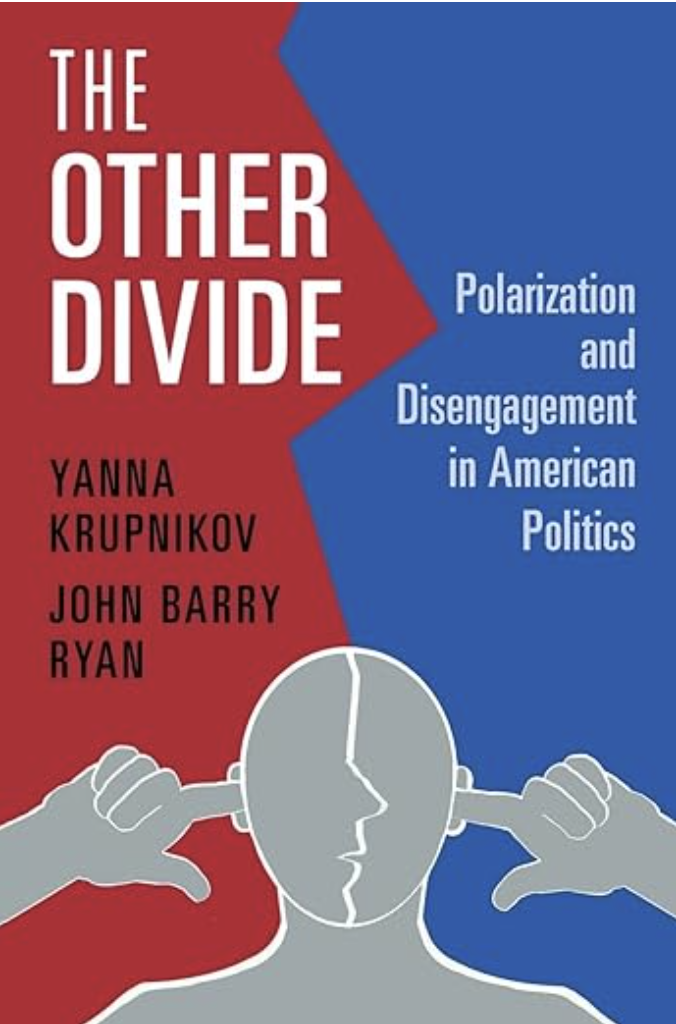
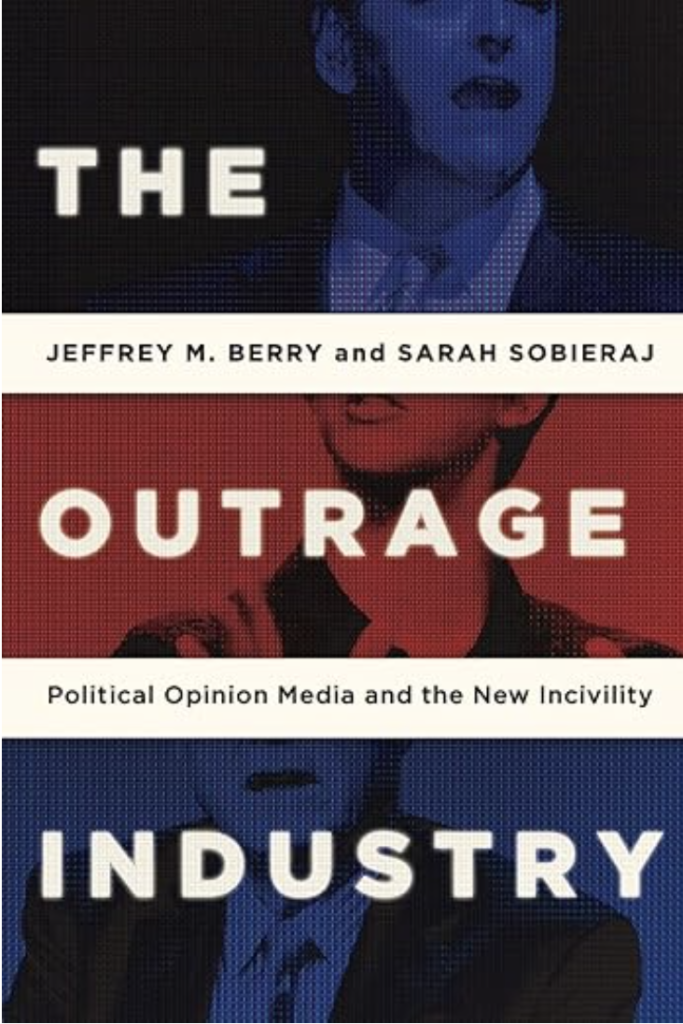
One person wrote this in last week’s comments section:Thanks Teri! I’ll spend all week getting all worked up about something, then once I read your weekly email, I tend to calm back down again. I love your work!
Now I will put on my Ann Landers hat and dispense some advice: Instead of getting worked up all week, figure out what you can do to help with the next election. For ideas, see this list. I just signed up again to do voter protection legal work in this election.
Allowing yourself to be worked up all week is not only fueling a profitable industry and driving polarization, it isn’t good for you. Psychologists tell us that long exposures to rage and anger change something in our brains.
If you felt angry or disappointed that I wrote about Ronna McDaniel but failed to deliver a scathing takedown of her–or if you are annoyed that I spent time talking about left-wing conspiracy theories when Fox is so much worse–I suggest that you are being manipulated by a partisan for-profit rage machine.
So how do you suggest that we get fact-based news?
The problem, of course, is that we are in a media disruption that began in the 1990s. I’ve compared the current media disruption to the advent of the printing press. These disruptions are destabilizing partly because people have not yet learned how to evaluate the onslaught of material, which allows misinformation and conspiracy thinking to surge and exacerbates polarization.
My main source of news is The Washington Post. The Post makes mistakes, but a reputable print media will check sources and make an attempt to separate opinions from facts. I find that with print media I am better able to avoid hyped-up opinions and juiced-up headlines. I scroll past those. Each time I refuse to click, I imagine I am sending the editors a message:
Give me facts.
The only newsletter I subscribe to is Heather Cox Richardson’s. She stays anchored to facts, offers a historical perspective, and doesn’t resort to heated and inflammatory rhetoric. On rare occasions when I would have quibbled with one of her legal conclusions, there was still nothing in what she wrote that would get people unduly riled or misled.
I am not able to recommend podcasts or TV broadcasting because I don’t watch or listen. I am strictly a print person.
My advice is this to read (or listen) critically. Be aware of whether you are being offered sensationalized stories from anonymous sources, opinions, or straight factual reporting. All speech and writing have some slant. Be aware of the slant.
Someone left this comment on my blog:
I would be interested in seeing a list of lawyers you recommend and trust. If you have done such a list, please point it out. Thanks for your work – it has changed how I approach media, for sure.
Any list I make is only good for the moment. Nobody is right all the time or has all the answers. I’ve seen reasonable commentators go bad and begin repeating the latest rage-inducing simplification.
I suspect that people who are confused by the news and want a lawyer to explain what is happening are listening to too many pundits and commentators. Stop listening to the pundits and you won’t need someone to tell you which hot takes and speculations are reasonable and which are unhinged. I promise that you are smart enough to understand the factual accounts of the legal proceedings presented in a major newspaper.
What is often happening now on Twitter is that even the most trivial news events are presented as a matter of life or death for democracy. This is particularly true in the reporting about the Trump trials. People in the hyperpartisan liberal media bubble have been told for years that democracy will live or die depending on the timing of the trials. As a result, each delay sends people into meltdowns. (Fact: Complex cases often take years to get to trial and delays are routine.) I’ve talked about the Ticking Clock suspense device here.
Meanwhile, what matters to most Democratic and potential voters is reproductive rights.
Since Roe v. Wade was overturned, reproductive rights is the issue that is enabling Democrats to win.
I opened The Washington Post one day this week and learned that the Supreme Court of Florida allowed an extreme anti-abortion law to stand, and that a voting referendum will be on Florida’s ballot. I also learned that Nevada may have an abortion measure on the November ballot. Any time reproductive rights have been on the ballot, Democrats won.
There was a goosebumps moment during Biden’s State of the Union speech when he looked at the Supreme Court justices and quoted this line from the case that overturned Roe v. Wade: “Women are not without electoral or political power.” Biden then said, “No kidding,” and calmly informed the justices that they were about to see how much electoral and political power women have.
Next week I will continue writing about law and politics, but I plan to ignore the outrage industry, so if I write about current issues, I may be out of step with what you hear on cable news or read on social media.
I’ve been going against that particular current for a while. The current is now getting stronger.
I have turned off the comments function on my blog. I don’t want to have to moderate comments if they become heated again.
I understand that readers like to express appreciation in the comment section. If you are a subscriber and a reader, you have given me all the appreciation I need.









